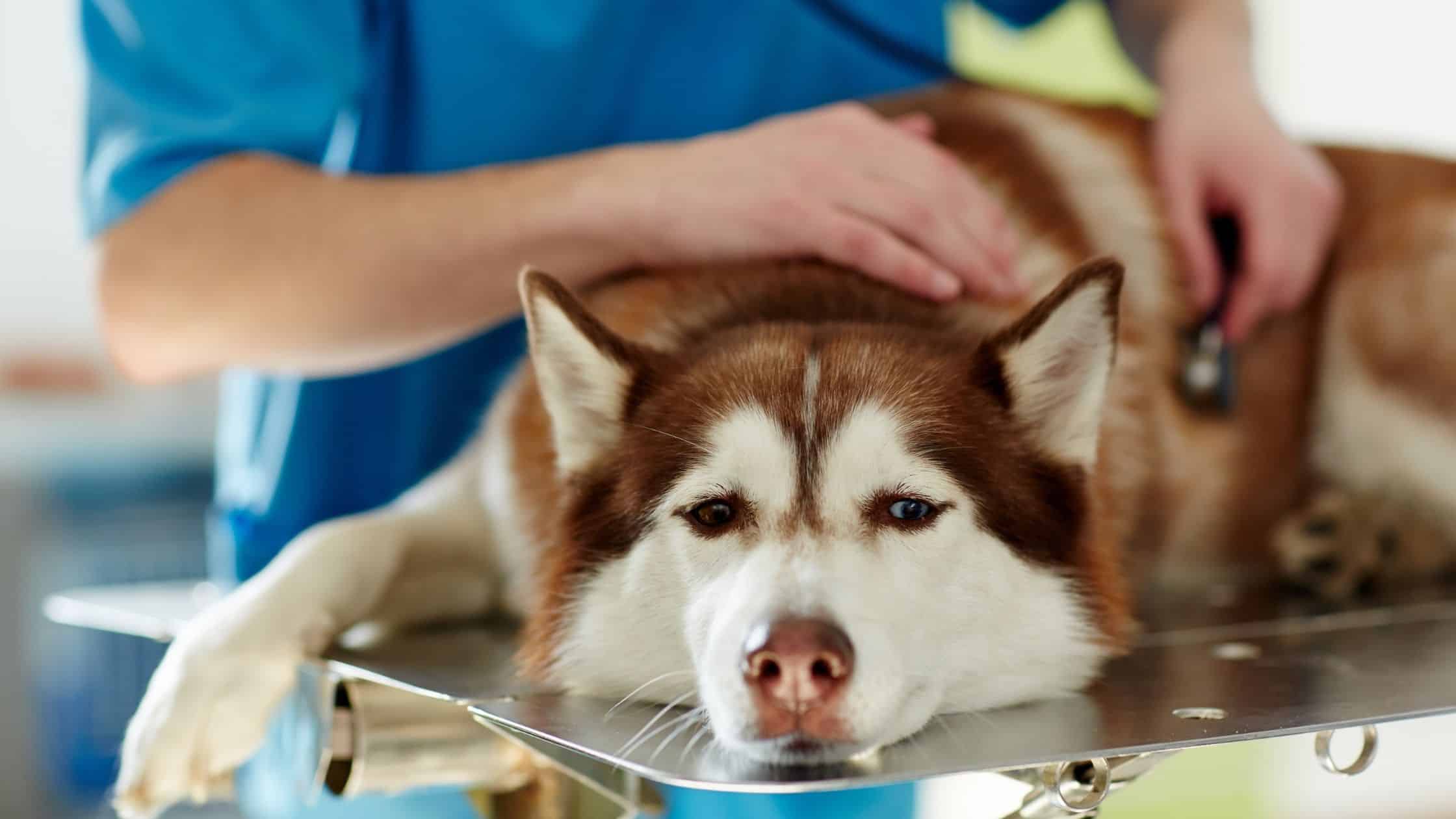CBD for Pet Seizures

Today, there is increasing evidence that CBD oil can help dogs with epilepsy. According to the American Kennel Club (AKC), up to 30% of dogs with epilepsy continue to experience seizures, even while on seizure medications.
Pet seizure medications like phenobarbital, potassium bromide, diazepam, and other anticonvulsant drugs may also have serious side effects in some dogs. These include skin rashes, tremors, depression, pancreatic issues, and more.
Cannabidiol (CBD) is a safe and natural nutraceutical for treating seizure disorders and epilepsy in dogs. The latest research has demonstrated that CBD may be beneficial as an anti-seizure pet supplement with broad-spectrum and isolates CBD oil as a popular and safe option.
The FDA has recently approved Epidiolex, a pharmaceutical-grade formulation of CBD oil, and explains that “Epidiolex’s effectiveness was studied in three randomized, double-blind, placebo-controlled clinical trials involving 516 patients with either Lennox-Gastaut syndrome or Dravet syndrome. Epidiolex, taken along with other medications, was shown to be effective in reducing the frequency of seizures when compared with placebo.”
If your dog has been diagnosed with epilepsy or suffers from seizures, you’ll need to work with your integrative veterinarian to make the right treatment decisions. Make sure that you have pet insurance to cover your pet’s veterinary needs.
But first, you should arm yourself with the best hemp oil and CBD knowledge so that you can make good decisions for your furry best friend.
What is Epilepsy?
Epilepsy is a chronic condition that affects millions of dogs each year. Like their pet parents, dogs may suffer from similar health conditions like seizures, cancer, arthritis, and urinal tract infections. The good news is that CBD oil, as a natural supplement, may support healing in dogs.
Epilepsy in dogs is a brain disorder that results in bursts of abnormal electrical activity in the brain. It is characterized by repetitive seizures and may be idiopathic, meaning that your furry best friend may have inherited this condition. Certain breeds are more prone to seizures.
Veterinarians will eliminate other neurological causes of seizures, such as structural brain abnormalities like hydrocephalus, and encephalitis, and make sure that no metabolic disorders are present before concluding a diagnosis of idiopathic epilepsy.
Seizures may be short and last for just a few seconds, or they may last for a few minutes. Dogs may jerk or become anxious and stiff. It’s a good idea to video your dog having a seizure so that you can show your veterinarian. Pet parents can also keep a journal noting times, frequency, and dog behavior during all seizure activity.
Dogs can suffer different types of seizures, with each dog having different types of seizures. A dog may have different types of seizures, some of which will not involve convulsions. For a dog to be diagnosed with epilepsy, they need to have had more than one seizure.
Symptoms of Seizures
- Muscle Twitching or convulsions
- Stiffness
- Salivation
- Loss of bladder or bowel control
- Anxiousness
- Tongue chewing
- Drooling
- Foaming at the mouth
- Loss of consciousness
- Leg paddling after falling over
- Dazed look
- Confusion
- Irregular attacks
- Behavioral changes
- Temporary loss of vision
- Panic-stricken
- Facial spasms
- Shaking
Dog Breeds That May Be Prone to Seizures
- Beagles
- Irish Setters
- Keeshonden
- Belgian Tervurens
- Siberian Huskies
- Labrador Retrievers
- Golden Retrievers
- Springer Spaniel
- German Shepherd
General Ages of Dogs Affected with Idiopathic Epilepsy
- Six months to 6 years (with no underlying causes)
Structural Epilepsy
Some of the underlying causes of structural epilepsy in dogs are brain infection, trauma, blood supply issues, tumors, inflammation, and bleeding. Your veterinarian will recommend an MRI and cerebrospinal fluid analysis. Metabolic disorders may also contribute to neuronal degeneration.
Types of Seizures
- Generalized seizures (involving both sides of the brain)
- Focal seizures (involving one side of the brain)
- Focal seizure becoming a generalized seizure
- Reactive seizures stem from a brain function issue from poisoning or metabolic changes. The most common seizure type in dogs is a generalized seizure that starts as a focal seizure.
Environmental Factors Affecting Seizures
- Poisonous materials
- Toxins are found in food, pesticides, and toxic cleaning products by accidental ingestion.
Traditional Medications for Dogs with Seizures
- Primidone
- Phenobarbital
- Potassium Bromide
- Zonisamide
These traditional anti-seizure medications all have side effects which may include:
- Fibrosis
- Liver cirrhosis
- Hepatic necrosis
- Blood disorders
- Hyperthermia
- Skin reactions
- Organ failure
- Weight-loss
- Lethargy
- Imbalance
- Nausea
- Diarrhea
- Vomiting
- Anxiety
- Anemia

The Good News About CBD Oil and Seizures
A recent 2019 study from Colorado State University found that CBD oil effectively reduced the frequency of seizures in dogs. The study adds, “Scientists have found in a small study that 89 percent of dogs who received CBD in the clinical trial had a reduction in the frequency of seizures. Nine dogs were treated with CBD, while seven in a control group were treated with a placebo,” via Science Daily.
This study demonstrates that CBD oil reduces the frequency of seizures in dogs and shows how the degree of seizure reduction is closely linked to the amount of CBD oil concentration in the dog’s blood.
What is Cannabidiol Oil for Dogs?
CBD oil is one of the 104 chemical compounds from cannabinoids found in cannabis. With no “high effect” that comes from regular marijuana, CBD is beneficial for numerous health conditions and ailments. It also has no dependency potential. According to a recent report from the World Health Organization, CBD is safe. CBD is a non-psychotropic phytocannabinoid that offers both therapeutic and medicinal purposes for humans and pets. CBD is natural and secure and is derived from hemp and cannabis. Most CBD pet treats will use CBD from hemp.
US CBD LAW
The Agricultural Act of 2014, also known as the Farm Bill, was signed in 2014. This allowed for industrial hemp research, as well as for industrial hemp cultivation. Hemp must have less than 0.3% tetrahydrocannabinol (THC), a psychoactive chemical found in cannabis. By 2015, the Industrial Hemp Farming Act was signed, which allowed for further industrial hemp growth. This act removed hemp from the controlled substances list because it contained no more than 0.3% TCH.
WHO adds, “In humans, CBD exhibits no effects indicative of any abuse or dependence potential…To date, there is no evidence of public health-related problems associated with the use of pure CBD. The range of conditions for which CBD has been assessed is diverse, consistent with its neuroprotective, antiepileptic, hypoxia-ischemia, anxiolytic, antipsychotic, analgesic, anti-inflammatory, anti-asthmatic, and antitumor properties,” via Harvard Health Blog.
CBD oil for dogs with seizures or epilepsy is easy- to use since it can be administered to a dog’s food, water, or tongue. That said, the use of any CBD oil on dogs with epilepsy needs to be discussed with a CBD-savvy veterinarian so that dosage is carefully calculated and an accurate diagnosis is made beforehand.
CBD Dog Treats for Seizures
Dogs enjoy gourmet flavored CBD dog treats with super soft options for senior dogs and miniature breeds. Safe, high-quality, organic, non-GMO and USA-sourced CBD pet treats are loaded with health benefits. This is because CBD may help pets with the following health conditions:
- Inflammatory bowel disease
- Side effects of chemotherapy and radiation
- Chronic pain
- Anxiety
- Seizures and tremors
- Cardiac health
- Autoimmune diseases
- Cancer
- General aches and pain
- Arthritis
- Fear
- Skin irritations like hot spots
- Skin tumors
What to Look for in CBD Dog Treats?
- Hemp CBD should be 100% food grade
- Should be made using CO2 extraction
- No solvents like butane
- Full-spectrum lab testing by a third party for purity and potency
- Lab certificates are available for pet owners to examine before a purchase
- Pesticide and herbicide-free (NO GLYPHOSATE)
- Made with non-GMO hemp
- Grain-free functional chews may be a good option for dogs with allergies.
- Natural flavors like pumpkin, turkey, sweet potato, blueberry, peanut butter
What to Take Note of with CBD Dog Treats for Dogs with Epilepsy?
With CBD dog treats or any edibles, the dosage will vary according to the brand you choose. Dogs will need a different dosage than humans, so it’s important to note that human and pet CBD products have different dosages. Human CBD products should not be used on pets.
It’s best to reach out to your veterinarian to discuss the appropriate CBD potency for your dog. A dog’s age, health conditions, weight, and sensitivities must be taken into account first.
Cannabidiol dog treats and edibles are 100% safe, natural, and non-toxic. They provide pain relief and ward off anxiety and canine depression. Most CBD dog treats have less than 1% THC to no THC, so dogs will not experience any “high” after consuming CBD treats.
CBD Dosage for Dogs with Seizures
Pet parents will need to calculate the correct CBD starting dosage with their veterinarians. This is done by weighing your dog in kilograms and choosing the right hemp concentration for maximum efficacy. The dosage is divided into a few daily doses, with the lowest dosage at 0.05mg/kg/day and then increasing from there with your veterinarian’s approval.
High-quality CBD pet products have been used together with traditional pharmaceutical anti-seizure medications (anticonvulsants) for dogs with little to no side – effects. CBD oils for seizures are beneficial to dogs with epilepsy because they can lower the overall dosage of pharmaceutical medications. This, in turn, will reduce the long-term damage of pharmaceutical anticonvulsants in dogs.

Extra-Safety Tips When Using Cannabidiol Oil with Pharmaceutical Veterinary Meds for Seizures in Dogs
- Administer CBD and anticonvulsant drugs at different times throughout the day as prescribed by your veterinarian.
- Two hours between both dosages seems to be the recommended minimum when using CBD and an anticonvulsant drug for pets.
- Keep in mind that both CBD and anti-seizure meds will metabolize at different rates, thus the need to work closely with your veterinarian.
- Cannabidiol oil for dogs with epilepsy needs to be kept below .07mg/lb. (consult with a CBD-savvy veterinarian)
- Consider monitoring your dog’s anticonvulsant med level by asking your veterinarian to do regular blood tests.
What You Should Keep in Mind When CBD pet products are used together with veterinary pharmaceuticals:
CBD may have the potential to inhibit CYP (cytochrome P450) enzymes that metabolize all medications. This means that you will need to discuss CBD oil use with your veterinarian first because it may raise or lower the anticonvulsant pharmaceutical potency by delaying when it’s metabolized.
CBD Oil Does Not Give Your Dog a “High’
A high-quality CBD oil will have very little to no THC at all. Veterinary-approved CBD oils will usually have no THC in their pet products. This means that there is no psychotropic effect. Pet parents need to ensure that there is no THC in their CBD pet products because THC does the following:
- Binds to responsive receptors in a dog’s brain
- This leads to a dangerous “high.”
Signs of a THC “High” in Dogs
- Drooling
- Unusual behavior
- Disorientation
- Nausea
- Lethargy
- Excessive urination
Pet parents should opt for high-quality CBD pet brands that only contain phytocannabinoids derived from locally sourced hemp in the US. The CBD brands should be manufactured in the US, and a Certificate of Analysis (COA) be available for each product.
Cannabidiol Oil with Glyphosate (No Weed Killer)
The Take on Weed Killers on Organic Hemp Products
Pet parents should look out for CBD natural supplements that do not contain Glyphosate, a weed killer known initially as Roundup. This weed killer is commonly used in global agriculture and shows up in rainwater and animal tissue. That said, when purchasing CBD pet supplements, look for product labels that promote the absence of Glyphosate in CBD pet product lines. Glyphosate is dangerous, and in 2015 The World Health Organization (WHO) added that it is probably cancer-causing to both humans, livestock, and pets.
The take on Glyphosate is that it is not used intentionally when growing hemp and marijuana crops because it would kill the crops. Yet, soil and wind may expose cannabis plants to Glyphosate.
“Hemp has a serious issue with pesticide residues, and not just glyphosate, because of the structure of the plants,” said Henry Rowlands, director of The Detox Project. This European advocacy group issues glyphosate-free certification for thousands of products,” via The Hemp Industry Daily.
With hemp and marijuana plants being bio accumulators, meaning that they absorb contaminants in the soil faster than they excrete them, consumers must check all CBD product labels before purchasing to ensure no glyphosate.
Even organic CBD natural supplements can contain pesticides because there is no screen testing for Glyphosate.
“Organic certification tests and routine pesticide tests don’t screen for Glyphosate, and no state currently counts Glyphosate among the residual pesticides checked in cannabis safety testing. As a result, Glyphosate can show up even in hemp products certified organic,” via The Hemp Industry Daily. CBD manufacturers can have their products tested for glyphosate residues via the Detox project for an additional $1,499 yearly. CBD brands like Bluebird Botanicals, RE Botanicals are encouraging glyphosate testing.
Quality hemp extract for pet products will ensure a safer pet product. After all, you’re purchasing a health supplement that has to be beneficial to your dog’s health! That said, checking all the CBD pet product labels is essential when purchasing an expensive cannabidiol oil for your dog that suffers from seizures. With high-value CBD supplements that may cost as much as $200 for a tincture, you’re going to want to ensure product safety and quality first!

CBD Pet Products for Dogs with Seizures
- Phytocannabinoid-rich (PCR) hemp oil (products that are veterinary approved work well for seizures.)
- CBD products provide the entourage effect by retaining volatile hemp and terpenes in their formulations.
- CBD products from reputable and transparent CBD pet brands like Holistapet, Canna-Pet, Innovet, Receptra Naturals, and CBD Distillery.
- Opt for coconut-flavored tinctures made from full-spectrum phytocannabinoid-rich hemp oil.
- CBD oils should be free of pesticides and should be naturally flavored with no synthetic additives.
- Organic hemp seed oil should use C02 extraction for purity and safety.
- Combinations of hemp seed oil with coconut oil and grapeseed oil (Omega-6) harvested offer optimal health benefits and fight inflammation and autoimmune disease.
- CBD products for dogs that contain polyphenols and flavonoids include antioxidant benefits.
- Veterinarian-recommended and approved guarantees safety and purity.
- High-quality products are US or Canadian grown and manufactured.
- CBD products for both cats and dogs are good.
- Always get this: Third-party certified for purity and safety(COA)
- CBD oil for dogs must have improved absorption and bioavailability.
- Inspect for higher levels of CBD –check dosage before use because this will be more potent.
- Immediate effect CBD with a high-quality CBD tincture.
- Full-spectrum CBD oil is what you should always be purchasing!
- Ensure that your CBD oil has no contaminants, carrier oils, or alcohol.
- All CBD products should be made in the USA or Canada.
- Organic, non-GMO, and vegan is super beneficial and yields a purer and cleaner cannabidiol oil for your pet.
Finding the best CBD oil for your furry best friend should be a no-brainer! With so many excellent CBD pet products out in the market, it’s a good idea to examine product feedback, brand transparency, and reputation in the pet niche and how long the brand has been in the market. Don’t be fooled by marketing strategies or packaging with inaccurate labeling!
Reputable CBD pet brands are easy-to-spot and are worth spending more on! With CBD having broad anti-seizure properties that may benefit other types of intractable epilepsy, it’s a good idea to consult a CBD-trained veterinarian who can guide you along the way!
CBD oil, as a natural supplement, is beneficial in reducing seizures and in helping with numerous health issues in dogs. Today, thanks to all the recent research, we understand how helpful cannabidiol is for pets and people.
While you should start with the lower end of dosing and slowly work your way up, always reach out to your vet if you need to adjust the serving size or CBD potency just to be on the safe side. You should also opt to always have pet insurance so that you can consider all approaches to veterinary care without worrying about the cost.
This article provides a guide to understanding pet insurance.



